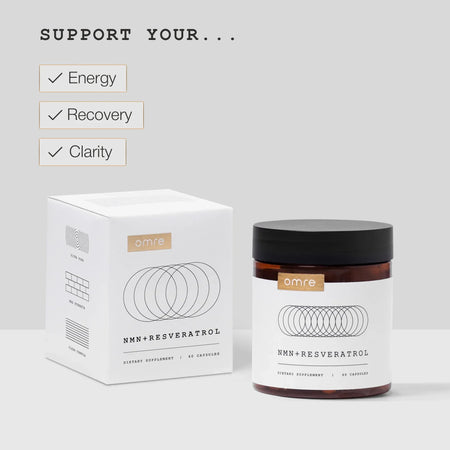In the realm of health and wellness, particularly in the context of aging and cellular function, two compounds have gained significant attention: NMN (Nicotinamide Mononucleotide) and NAD (Nicotinamide Adenine Dinucleotide). These compounds are often discussed regarding their roles in energy metabolism and longevity. Understanding the differences between NMN and NAD is crucial for anyone interested in optimizing their health through supplementation or lifestyle changes.
What is the difference between NMN and NAD?
The primary difference between NMN and NAD lies in their molecular structure and their roles in the body. NMN is a precursor to NAD, meaning that it is a substance that the body can convert into NAD. NAD is a coenzyme found in all living cells that plays a vital role in energy production, DNA repair, and cellular metabolism. In short, while NMN serves as a building block, NAD is the active compound that participates in critical biological processes.
Understanding NMN
Nicotinamide Mononucleotide (NMN) is a nucleotide derived from ribose and nicotinamide. As a direct precursor to NAD, NMN is essential for the biosynthesis of NAD in the body. It has garnered attention for its potential anti-aging properties and its ability to enhance energy metabolism. When NMN is ingested, it can be converted into NAD through a series of enzymatic reactions. Research has indicated that NMN supplementation may help improve mitochondrial function, increase physical performance, and support overall cellular health.
Understanding NAD
Nicotinamide Adenine Dinucleotide (NAD) is a coenzyme found in every cell of the body, playing a critical role in various biochemical processes. NAD exists in two forms: NAD+ (oxidized) and NADH (reduced). The primary functions of NAD include facilitating metabolic processes, assisting in the conversion of food into energy, and participating in DNA repair mechanisms. NAD levels naturally decline with age, which is believed to contribute to aging-related health issues. Maintaining adequate levels of NAD is crucial for optimal cellular function and longevity.
The Relationship Between NMN and NAD
The relationship between NMN and NAD is central to understanding their roles in health and wellness. As a precursor, NMN is converted into NAD through enzymatic processes. This conversion is essential, as NAD is required for critical functions, including energy production and metabolic regulation. Supplementing with NMN is thought to boost NAD levels, thereby potentially enhancing cellular health and longevity. Studies have suggested that increasing NAD levels through NMN supplementation may lead to improved mitochondrial function, better energy metabolism, and enhanced overall health.
Health Benefits of NMN Supplementation
Research on NMN supplementation has shown promising results in various areas:
- Improved Mitochondrial Function: NMN may enhance the function of mitochondria, the powerhouses of cells, leading to better energy production.
- Increased Physical Performance: Some studies have indicated that NMN supplementation can improve exercise capacity and endurance, particularly in older adults.
- Support for Healthy Aging: By boosting NAD levels, NMN may help mitigate age-related decline in cellular function, promoting healthier aging.
- Metabolic Health: NMN has been linked to improved insulin sensitivity and glucose metabolism, which are crucial for maintaining metabolic health.
Potential Benefits of NAD Supplementation
While NMN is a precursor, directly supplementing with NAD is also an area of interest. Some potential benefits of NAD supplementation include:
- Enhanced Energy Metabolism: Direct supplementation with NAD may improve energy levels and support metabolic health.
- Cellular Repair and Maintenance: NAD plays a vital role in DNA repair and maintaining genomic integrity, which is crucial for longevity.
- Neuroprotective Effects: NAD has been studied for its potential to protect neurons and improve brain health, potentially reducing the risk of neurodegenerative diseases.
Sources of NMN and NAD
NMN can be found in small amounts in certain foods, such as:
- Broccoli
- Cabbage
- Cucumbers
- Avocados
However, the concentrations are relatively low, which is why many individuals turn to NMN supplements to achieve higher doses. NAD, on the other hand, is synthesized in the body from precursors such as tryptophan and niacin (Vitamin B3). Additionally, NAD can also be obtained through dietary sources rich in niacin.
Safety and Considerations
Both NMN and NAD supplements are generally considered safe for most individuals. However, as with any supplementation, it is essential to consult with a healthcare provider before starting any new regimen, especially for those with underlying health conditions or those taking medications. Ongoing research is needed to fully understand the long-term effects and benefits of NMN and NAD supplementation.
Conclusion
In summary, the primary difference between NMN and NAD lies in their roles and molecular structures—NMN being a precursor to NAD. While NMN supplementation can potentially boost NAD levels and improve various aspects of health, NAD itself plays a crucial role in energy production, DNA repair, and overall cellular function. As research continues to evolve, understanding these compounds will be instrumental in harnessing their benefits for health and longevity.
Stay Sharp, Stay Energized, Stay Ahead
Aging doesn’t have to slow you down. NMN + Resveratrol is your key to sustained energy, sharper focus, and long-term vitality. Whether you're a high performer pushing boundaries, a biohacker optimizing every aspect of life, or a parent looking to keep up with the demands of daily life, this powerful combination fuels your body at the cellular level.
Backed by science and trusted by those who refuse to settle for average aging, NMN + Resveratrol helps you stay ahead—today, tomorrow, and for years to come.
Experience the benefits for yourself. Start your journey to better aging now!
Try NMN + Resveratrol Today!
NMN + RESVERATROL
Cellular NAD+ booster with ultra‑pure NMN and Resveratrol, at research‑backed doses.*
Read more:


